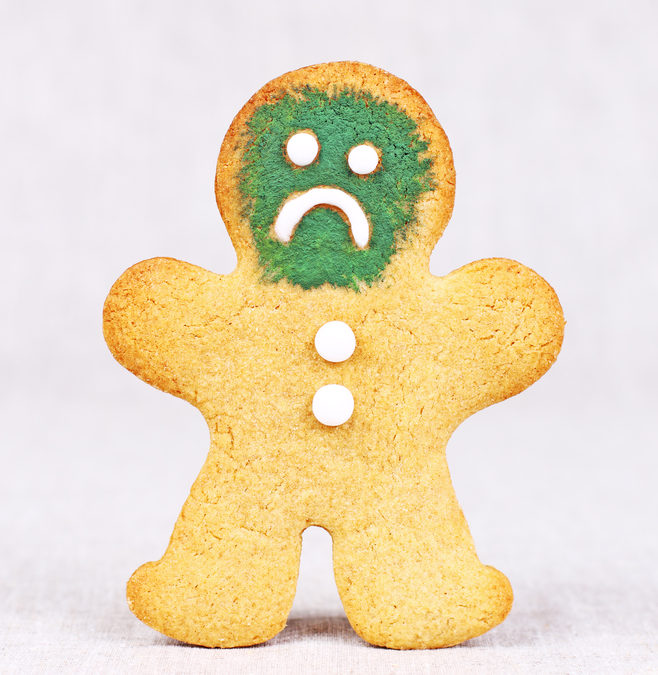Ok. We just got through round one.
Thanksgiving is a holiday centered around indulgence, so understandably this is going to be an obstacle for people trying to keep their blood sugars under control.
How did it go for you? Have you thrown in the towel and surrendered to the onslaught of celebratory binging going on all around you until we finally emerge into the New Year?
Many of us fall victim to this all or nothing mentality, but let’s look at choosing something different.
First, I want you to think about this: How do you want to feel going into the New Year?
YOU HAVE A CHOICE. None of this is happening TO YOU. I know it sounds like I’m being harsh, but I’m offering you a GIFT. A choice. Don’t all of us want the ability to choose what we want?
But first, you have to choose. You have to make a decision. If you don’t, you are actually deciding to let it all fall apart by default.
So let’s get to making a plan!
Step 1: Pay attention to your thinking:
Recognize this fact: Thanksgiving is ONE MEAL. Christmas dinner is ONE MEAL. You can focus on this fact and reject how our food culture tries to blow it up into weeks of excuses to eat and drink ourselves into oblivion.
I am talking about SCARCITY mindset.
Does this sound familiar?
“But it’s Christmas/Hanukkah!”
“This is the only time I’ll get to have this special treat/drink.”
“But it’s my favorite! If I don’t eat it now, I’ll have to wait until next year.”
See those sneaky thoughts? They create scarcity and urgency. What do we do when we feel this way? We eat against our better judgement.
Now let’s question that thinking. Is it really true that you can’t have this or that special treat whenever you really want it? Can’t you actually have what it is you truly want anytime you want it? Did you dream all year long about this treat? Or are you just thinking of it right now when it is in front of you? If you ate this every single Christmas season, how many times would you enjoy this treat in the future? 50? Is that enough?
Call these thoughts out and challenge them. When you do that, you neutralize the compulsion that drives you to take up offer after offer for holiday treats.
Here is another common scenario that gets many of us to repeatedly eat food we will later regret:
“If I don’t have some, they will be offended.”
“Of course I have to eat my [grandma’s/mom’s/insert incredibly gifted baker in your family here] delicious Christmas [cookies/handmade chocolates/insert delicious treat here]. She’d be so disappointed if I didn’t have any.”
“They worked so hard on this, I have to try some.”
There are 2 ways to think about this situation:
- Don’t believe the thought. Instead, believe: “No friend or family member who loves me really wants me to make myself sick.”
- Accept that sometimes people will choose to be offended, and that you don’t have to take responsibility for that. This sounds something like, “I’m willing to take care of myself even if others don’t understand sometimes.”
Most of the time, it’s just our brains wanting us to JUST EAT IT! JUST EAT IT! EAT IT ALREADY! And it offers us any argument to convince us. Letting it persuade you unchecked can get the best of you time after time.
Step 2: Make a Plan
“A goal without a plan is just a wish.” Click here for a post dedicated to this amazing topic.
You must decide ahead of time what you will eat, whether it’s your day to day food plan or a special event, like a holiday party. Allowing yourself to make decisions when you are in the moment, faced with urges and temptations, is a recipe for regret.
You can do this everyday, something I ask all my clients to do when they are working toward transformation. Or, you can plan ahead of events that you know will be challenging for you.
You will want to be very specific about what you are going to allow. Remember to think about this as a choice. No one is making you do anything. When you stop telling yourself you can’t have this or you can’t have that, you don’t need to eat behind your own back.
If you’re going to allow dessert and drinks, but you don’t know what will be served, just commit to having a specific number of servings of dessert and a specific number of drinks.
When you are really clear about what you are going to have, you will leave no room for mind drama and waffling about whether or not you should have this or that.
Decide. Ahead. Of. Time.
Commit to that. I recommend writing it down. When you write it down, it becomes something real outside of you. It’s a commitment that exists outside of your mind. And it makes it matter more.
Make sure you feel pretty confident that your plan is one you can stick to. It needs to be usable, not wishful. When we are too idealistic in our expectations of ourselves, we can get caught up in the impossibility of it. Don’t do that to yourself. Set yourself up for success.
Step 3: Don’t Beat Yourself Up and Give Up Every Time You Go Off Your Plan
I know it might shock you, but sometimes people don’t follow their plans. Especially when there’s drinks involved.
But the ones that succeed never use this as evidence against themselves.
You’re either learning or succeeding, right?
You must not qualify your misstep as a failure and a reason to quit. This is what your brain may tell you to do. See, it wants you to go back to comfort, but change is uncomfortable.
When you beat yourself up mentally for going off your plan, you experience shame, doubt, and despair. We avoid negative emotion, so we decide to quit for relief.
When you’re late to work on Monday, you don’t take the rest of the week off, do you? You just resolve to be on time the next day. You might think, “I need to clean the snow off the car 10 minutes earlier than usual.” Or, “That route is under construction, so I’ll go a different way tomorrow.”
This is how I want you to think about an eating plan gone wild.
Look at it as a problem solving exercise. Be calm and collected. Skip the self judgement, since there is NO upside. Ever.
Answer these questions for yourself: What went wrong? What can I do differently next time so it goes well?
This is how you avoid letting one donut at the coffee station turn into a full on catastrophe that lasts until you can’t stand yourself anymore.
Sometimes, I have to get my game face on. It can feel like a war zone out there for a person trying to lose weight or reverse their Type 2 Diabetes. Instead of resisting it, embrace it. Look at it as the perfect training grounds for becoming the kind of bad ass who reaches their goals NO MATTER WHAT.
I am asked all the time, what should I eat? What do I need to DO to reverse my diabetes? Just tell me how to do it. Of course, this is a super important part of reaching your goals. But the most important piece is your mindset. How you look at your situation, what you make it mean when you don’t get the result you want right away, and how you think about commitment.
When you work on your mindset and your thinking, you get what you want SO MUCH FASTER.
I can show you how to live your best life without diabetes. Reach out here:


